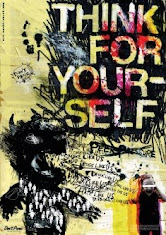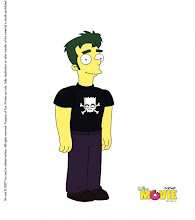
Unemployment Hits 9.7%, but Job Loss Slows in August
By JACK HEALY
Employers eliminated 216,000 jobs in August even as the larger American economy showed signs of turning around, suggesting that while the pace of job losses continues to slow, workers will still be among the last to benefit from a recovery.
The unemployment rate, calculated in a separate survey, resumed its climb last month after a dip in July, rising to 9.7 percent from 9.4 percent, the Labor Department reported on Friday in its monthly snapshot of the job market.
As factories slowly begin to ramp up production and businesses start to restock their shelves, economists anticipate that losses will dwindle and that employers could begin creating jobs by late this year or early 2010. But most forecasters — and White House officials — still expect the unemployment rate to reach 10 percent or higher.
“The job market is in for a slog,” said Mark Zandi, chief economist at Moody’s Economy.com. “It’s going to be slow, incremental improvement, and it’s the reason why the broader recovery’s going to be very fragile.”
Signs of weakness filled the report. Overtime hours were unchanged from a month earlier, and the length of the workweek was flat. Temporary employment services, among the first to hire after a recession, cut 6,500 jobs. And the rate of manufacturing job losses increased from a month earlier.
Still, Obama administration officials greeted the lower number of job losses as more evidence that the $787 billion stimulus was making a mark on the economy.
“The overall message in these numbers is that we’re headed in the right direction but we’re far from out of the woods,” said Jared Bernstein, an economic adviser to Vice President Joseph R. Biden Jr. “There are simply too many Americans seeking work, and that means too many families struggling with a job market that remains well behind the curve.”
Economists had foreseen 230,000 job losses for the month, and expected the unemployment rate to hit 9.5 percent. The government also revised monthly job losses for July higher, saying the economy had shed 276,000 jobs compared with the 247,000 that had originally been reported. The June number was revised to 463,000 job losses from 443,000.
Over all, the figures evinced a dreary landscape.
Average hourly earnings rose by 6 cents in August, to a seasonally adjusted $18.65 an hour, and average weekly earnings edged up to $617.32 from $615.33 in July. And the median time workers are unemployed fell slightly, to 15.4 weeks.
Economists said the slower pace of job losses provided another sign that the recession was losing steam. The nation’s economic output is expected to rebound over the rest of the year after four quarters of contraction, and the housing market is gradually getting back onto its feet.
But economists say employers must create 300,000 to 400,000 jobs a month to bring unemployment rates back to pre-recession levels — a difficult hurdle after such a prolonged downturn.
“High unemployment rates are going to be with us for quite a while,” Michael Feroli, an economist at JPMorgan Chase, said. “It’s going to be a long, long time before we see 6 percent or 7 percent unemployment.”
Months — or years — of a lackluster job market could further strain the finances of the country’s approximately 15 million unemployed, constraining their spending and putting them at greater risk of home foreclosure or default on credit cards or auto loans.
Some 128,000 manufacturing and construction jobs evaporated in August, and businesses ranging from financial companies to retailers to restaurants appeared poised to continue cutting positions through the end of the year, economists said.
And some 20 months into the recession, people like Ginny Hoover of Williamsburg, Va., are beginning to use up their unemployment benefits, their extended benefits and even their emergency payments from the government.
Ms. Hoover, 49, said she had been unable to find any work beyond the offer of a commission-only job selling life insurance door to door since she lost her job at a pharmaceutical company in November 2007, a month before the recession began. To get by, she maxed out her credit cards, borrowed money from friends and broke her apartment lease and moved into a free rental unit owned by her boyfriend.
“It’s hard for me to believe that it’s been almost two years,” said Ms. Hoover, who is now pursuing certification as a legal assistant. “I thought maybe a month or two and I’d have another job. I never would have guessed that it would be as brutal as it was out there.”
But the loss of 216,000 jobs in August, while grim by normal standards, underscored how far the economy had come from its worst days, when an average of 691,000 jobs were lost each month in the first quarter. Economists credited the stimulus plan and other rescue efforts by the Treasury Department and the Federal Reserve with stabilizing the economy and slowing job losses.
“They ended the credit crisis,” Robert Barbera, chief economist at ITG, said. “Banks are functioning. You’re got some pop from the clunker program. They get high marks in those areas. It’s a real tough labor market, one of the toughest in the postwar period, but it simply looks better than it did six months ago.”
But struggling workers like Donna Angelillo, 49, of Del Ray Beach, Fla., say they have not seen any signs of improvement. Ms. Angelillo lost her job as a property manager in May and burned through her savings in two months. Her $1,000 monthly unemployment check does not even cover her $1,030 monthly rent, and Ms. Angelillo said her late bills were reaching a critical stage.
“‘I don’t have September rent, but right now I’m more concerned about the electricity,” she said. “Either today or tomorrow, they’re going to shut it off. I’m getting desperate.”
Copyright 2009 The New York Times Company




0 comments:
Post a Comment